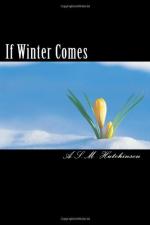|
This section contains 147 words (approx. 1 page at 300 words per page) |

|
Hutchinson's fiction derives from the great tradition of the English novel as seen in the work of Charles Dickens.
Like him, Hutchinson believes in the moral function of literature. His characters are rewarded for long-suffering virtue, punished for their sins, and sometimes redeemed through their punishment. Reading This Freedom (1922), one is reminded of Dickens's chastened heroes at the end of Dealings with the Firm of Dombey and Son (1848) and Hard Times: For These Times (1854): A horrible shock breaks the blinding pride of Dombey and Gradgrind, as it does that of Rosalie Occleve. If Winter Comes has a Dickensian tone, but perhaps some of its popularity resulted from its drawing from other, more current sources: Its relative frankness about illegitimacy reminds one of Esther Waters, George Moore's 1894 novel.
But Hutchinson's didacticism separates him from Moore and other realists; his closest affinities remain with Dickens.
|
This section contains 147 words (approx. 1 page at 300 words per page) |

|




